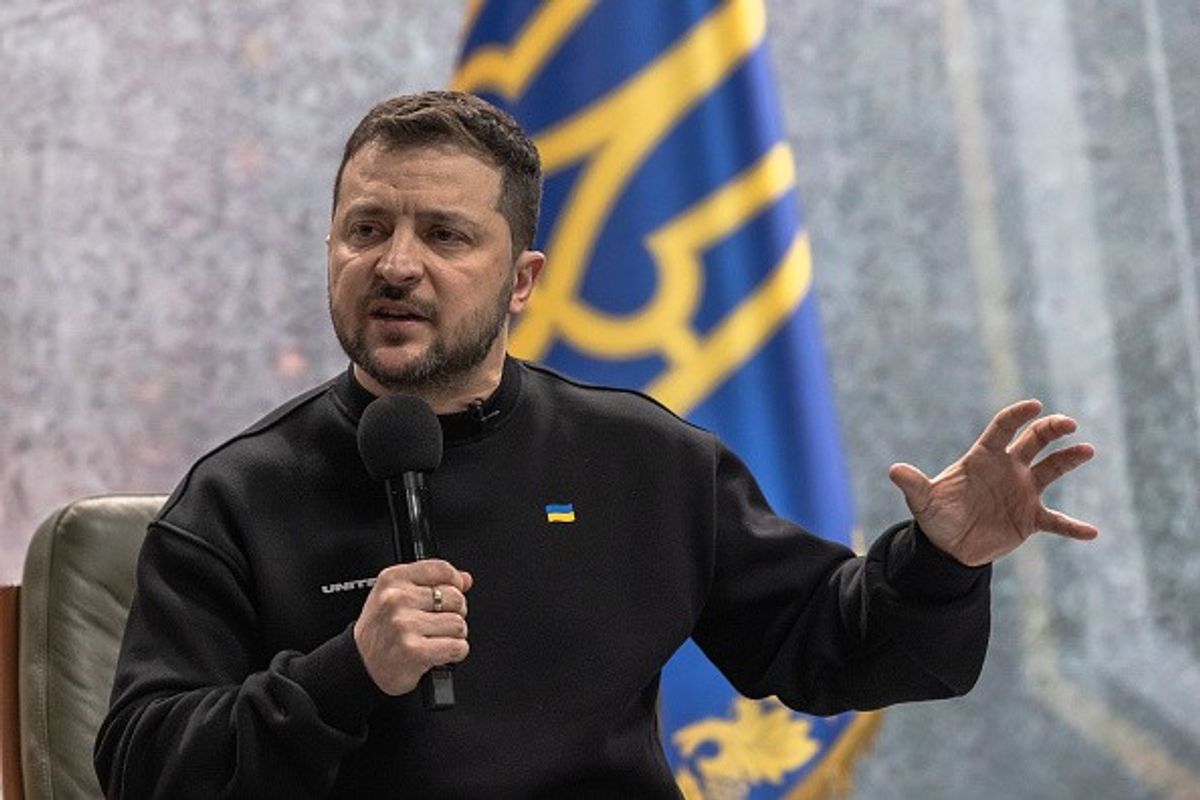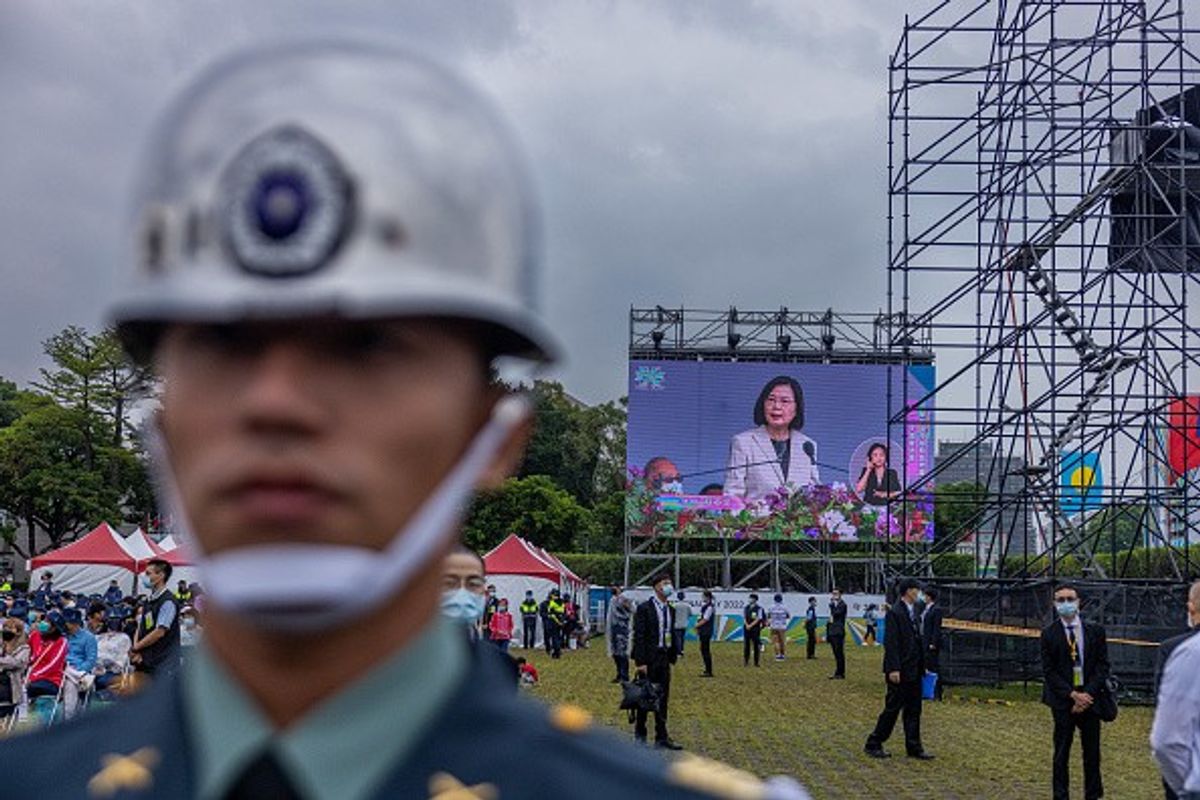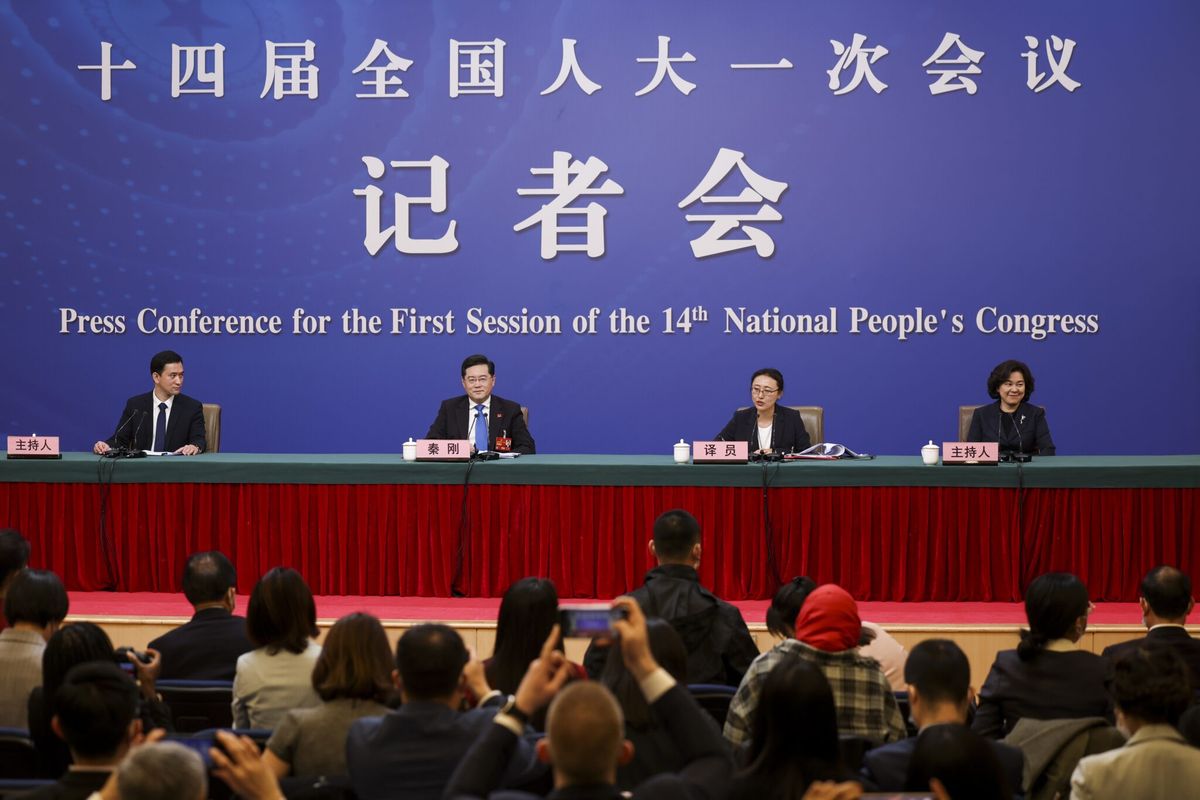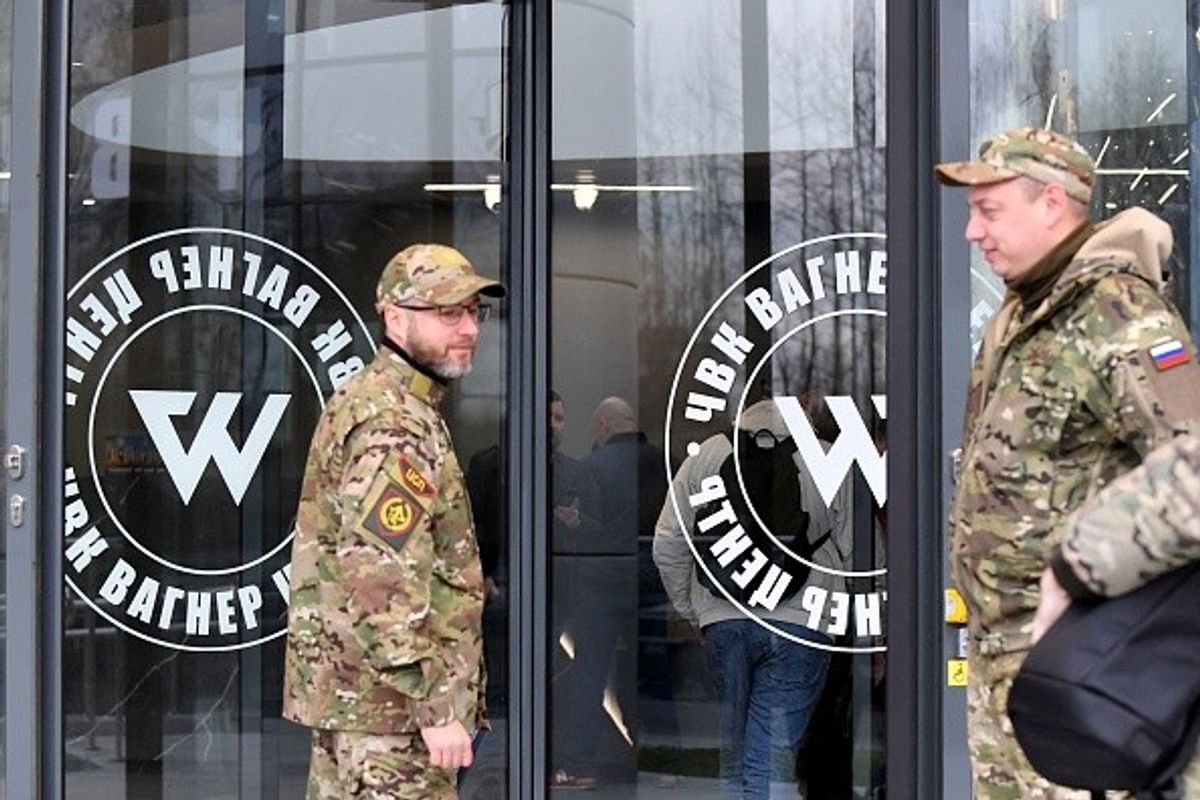Russia's economic struggles in the wake of its invasion of Ukraine are forcing Moscow to become more closely aligned with China, India, North Korea and Iran. Former senior CIA Officer and three-time CIA station chief Dan Hoffman weighs in on how the economic factor in the Ukraine war is reshaping global alliances.
EXPERT Q&A
The Cipher Brief: To some extent, Russia appears to have weathered Western sanctions and other economic setbacks during it's first year of war in Ukraine. What are your impressions of Russia’s current economic state and implications for the conflict with Ukraine?
Daniel Hoffman: The war is going to be decided on the battlefield. Some of the economic impact is interesting to follow, as it will have long-term ramifications but it's a bit of a side show. As far as who's going to determine who wins the war, the threat of economic sanctions never deterred Vladimir Putin in the first place. He's making enough money off the sale of oil to China and India to carry on, and he's getting enough support from North Korea and from Iran for the moment at least, to be able to launch pretty destructive attacks on Ukraine and carry on this war that he says is going to last. According to his advisors, he's planning on it lasting for quite some time.
The economic questions are interesting and there are long-term implications. Russia is kind of becoming a colony of China. They're sending all their raw materials, hydrocarbons to the Chinese, and they've decided that they're not going to be engaged with Europe. Of course, Europe's decided that they're not going to be engaged with Russia and will no longer import those Russian hydrocarbons. So, you're seeing a real break between Russia and the West, economically, culturally, diplomatically. That's the big story of the war. There's a break between Russia and the West, and Putin is turning to the East.
If he were thinking about his country's economic future, he would've turned to the West. But what scares him the most is democracy. So, he has to turn to the East to the great dictatorship of China because he knows he's going to get all the support he needs from the Chinese. The price for doing that is that China is usurping Russia's influence in Russia's traditional sphere of influence in Central Eurasia. I think the Chinese are very happy to see the Russians weakened and the Russians playing a far more subservient role in relation to China than they did before the war. So those are some of the big picture issues for me.
As far as what's going to decide the war itself and post-war, it’s very hard to say because there could be regime change in Russia, and they may go back to a relationship with Europe, but there's no indication that Russia's economy is going to collapse.
We've never constrained Russia's behavior. We're not constraining Russia's behavior with economic pressure. The question is whether we continue to be the arsenal of democracy. Europe is not a monolith. You've got some countries like Poland and the Baltic states and obviously Finland and Sweden that are very much in favor of maximum support to Ukraine. You've got a country like Hungary that's not interested in doing much and wants their cheap energy from Russia. Germany and France have gone both ways.
Russia thinks they might be able to pressure Europe, but we've seen a lot of the deals that have gone down between Europeans and the Qataris for gas, liquified natural gas, which is going to help Europe this winter. At the end of the day, the most important thing is if Ukraine can continue to demonstrate that they can win on the battlefield, which is what they're doing. Then I think, they're going to continue to get support from the West.
Putin is guilty of massive war crimes and a humanitarian crisis, the likes of which we haven't seen since World War II, all caused by Russia. You've got a nuclear state slaughtering the citizens of its neighbor in an imperial land grab. At the end of the day, I just can't see how we're going to let that happen, even if there's some economic pain to be paid for standing up for those principles.
Russia’s economy is weakened. But I would say, too, that Russia’s focus has obviously transferred to the East from the West, and that in many ways, that is the big story.
I think the bigger question is the calculus of Russian elites, the inner circle of Vladimir Putin. Do they just decide we've spilled so much blood and treasure in this war, it's time to blame Putin for it and move on because this isn't good for us? We want to send our kids to school in Europe. We want to export to Europe.
My concern, based on the years I spent in Russia, is that nothing ever gets better there. It usually gets worse in unimaginable ways. Hundreds of thousands of Russians have fled. The conscription plus the economic downturn has had an impact. There are lots of people who don't like what Vladimir Putin is doing to the country. It's the same in Iran and China. If you're a dictatorship and you don't perform, then it's not like the population can go to their elected leaders and say, "We don't like this or that policy, please change it." That's why they're brittle. At the end of the day, Russia is a brittle country.
The other question is, can they handle dissent? I think the answer to that is yes, Vladimir Putin has the capacity to handle whatever dissent there might be in Russia with his brutal security services, the FSB, the police and Ministry of Interior thugs. He can put a world of hurt down on his population. It's been 20 years of them not rising up at all against him. I haven't really seen the signs that the people can mount some sort of a 1905 or 1917 revolution against Vladimir Putin. But his own inner circle, like Minister of Defense Sergei Shoigu, Alexander Bortnikov running the FSB — their people are on the front lines. They may face a lot of pressure and that may cause problems for Putin in his own inner circle.
Cipher Brief Subscriber+Members enjoy unlimited access to Cipher Brief content, including analysis with experts, private virtual briefings with experts, the M-F Open Source Report and the weekly Dead Drop - an insider look at the latest gossip in the national security space. It pays to be a Subscriber+Member. Upgrade your access today.
The big question isn't the Russian economy, it's Ukraine. How do you rebuild? What's the cost of that? A trillion dollars? Who's going to pay for it? I've been saying that it's a good investment for the West to support Ukraine. They're doing more to counter Russia's aggression than any NATO member has ever done and that's good. That's a good investment for us.
But who's going to pay for fixing Ukraine? Forget Russia. They brought this on themselves. The bigger question is, with their cities being bombed, with schools and hospitals and apartments and millions of people displaced internally and millions more made refugees overseas, what happens to Ukraine?
The Cipher Brief: Post-conflict, do you think Europe and the U.S. will be in Ukraine's corner in helping them to rebuild?
Hoffman: There’s already talk about confiscating Russian assets to help with Ukraine’s reconstruction. That’s very difficult thing to do because you have to prove that Putin’s supporters, oligarchs or others, had something to do with Putin's decision to fight or the war itself. It's very hard to do that. And forcing Russia to pay also, I mean, that's a tough one.
I think there's an understanding that ultimately this will depend upon how the conflict is resolved. If Vladimir Putin exits the scene and some new person is now running the show and they say, "We're going to withdraw from Ukraine from everything since 2014, from Crimea, from Donbas. We don't have the wherewithal to pay. We're poor. We'll make a deal where we pump gas through Ukraine, and some percentage of that can go towards Ukraine's economy, but in return for not having to pay reparations" which we know from the First World War, isn't always the best idea. These are things that our senior administration officials can be quietly telling the Russians: "Stop taking orders from the KGB guy in the Kremlin to rain down hell on Ukrainian civilians. The faster you do that, the better settlement you're going to get. Otherwise, we keep fighting."
I'm being a bit presumptuous here, but if I were sitting in the White House, I'd say in my back channel discussions with the Russians, "Look, make a deal. This is what the deal's going to be. You guys have to stop raining down hell on Ukrainian civilians," that means Putin's got to go. You don't actually have to say Putin has to go, but if you're demanding that they stop and that they withdraw from Ukraine's territory, because Ukraine's not going to stop fighting now. There's too many dead Ukrainians in their homes and hospitals and schools and parks. They're not going to stop until they do everything they can to liberate Donbas and Crimea.
The Cipher Brief: Do you get the sense that Europe's reboot in terms of its energy providers is a permanent one, have they weaned themselves off Russia and are they going to find long-lasting alternatives?
Hoffman: I think they're looking in every way they can, in good ways. They're looking at Norway and Qatar, and they're admitting now, that they made a mistake by relying on Russian energy. Putin said, "I'll never use this against you." Well, of course he would. I mean, he's lying. He's the KGB guy. I don't know how many times at CIA I said to senior leaders, including directors, "He's lying. Sorry, don't take what he says at face value." That's why there's no deal to be done with Putin. You're not going to negotiate a settlement to this war with Vladimir Putin. It's just subterfuge with him. So as far as Europe understands they need nuclear energy — France is working on that — and they need renewables and they need alternative sources of hydrocarbons. They would have done better if they'd done those things when Russia invaded Ukraine in 2014, or Georgia in 2008. There's a lot of humble pie dished out in Europe right now for all who thought they knew what they were doing with the right strategy, economic strategy. They didn't get it right and they're paying the price, but there's still time.
Read more expert-driven national security insights, perspective and analysis in The Cipher Brief















